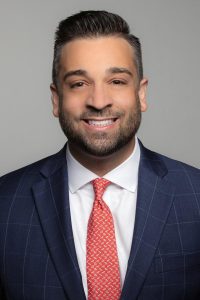By Michael Christodoulou
Now that the calendar has flipped, it’s time for some New Year’s resolutions. You could decide you’re going to exercise more, lose weight, learn a new skill, reconnect with old friends — the possibilities are almost limitless. This year, why not add a few financial resolutions to your list?
Here are a few to consider:
Reduce your debts. It may be easier said than done, but if you can cut down on your debt load, you’ll increase your cash flow and have more money available to invest for your future. So, look for ways to lower your expenses and spending. You might find it helpful to use one of the budgeting apps available online.
Boost your retirement savings. Try to put in as much as you can afford to your IRA and your 401(k) or other employer-sponsored retirement plan. If your salary goes up this year, you’ve got a good opportunity to increase your contributions to these retirement accounts. And once you turn 50, you can make pre-tax catch-up contributions for your 401(k) and traditional IRA. You might also want to review the investment mix within your 401(k) or similar plan to determine whether it’s still providing the growth potential you need, given your risk tolerance and time horizon.
Build an emergency fund. It’s generally a good idea to maintain an emergency fund containing up to six months’ worth of living expenses, with the money kept in a liquid, low-risk account. Without such a fund, you might be forced to dip into your long-term investments to pay for short-term needs, such as an expensive auto or home repair.
Keep funding your non-retirement goals. Your traditional IRA and 401(k) are good ways to save for retirement — but you likely have other goals, too, and you’ll need to save and invest for them. So, for example, if you want your children to go to college or receive some other type of post-secondary training, you might want to invest in a tax-advantaged 529 education savings plan. And if you have short-term goals, such as saving for a wedding or taking an overseas vacation, you might want to put some money away in a liquid account. For a short-term goal, you don’t necessarily need to invest aggressively for growth — you just want the money to be there for you when you need it.
Review your estate plans. If you haven’t already created your estate plans, you may want to do so in 2025. Of course, if you’re relatively young, you might not think you need to have estate plans in place just yet, but life is unpredictable, and the future is not ours to see. If you have already drawn up estate plans, you may want to review them, especially if you’ve recently experienced changes in your life and family situation, such as marriage, remarriage or the addition of a new child. Because estate planning can be complex, you’ll want to work with a qualified legal professional.
You may not be able to tackle all these resolutions in 2025. But by addressing as many of them as you can, you may find that, by the end of the year, you have made progress toward your goals and set yourself on a positive course for all the years to come.
Michael Christodoulou, ChFC®, AAMS®, CRPC®, CRPS® is a Financial Advisor for Edward Jones in Stony Brook, Member SIPC.
This article was written by Edward Jones for use by your local Edward Jones Financial Advisor.







